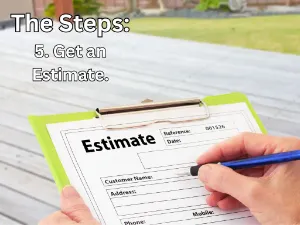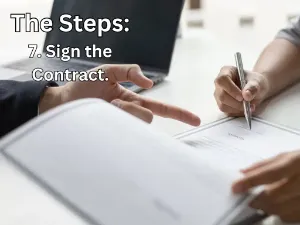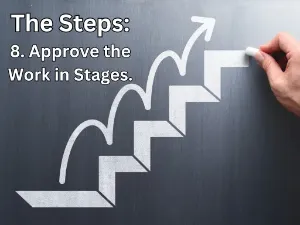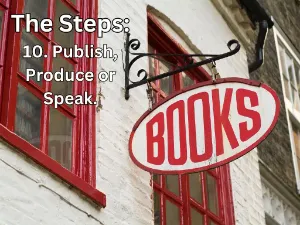
This is an email conversation between me and one of my writers. I assigned him a screenplay client. And this writer is a recent addition to our merry crew of scribes. The client, a novice at screenwriting, was of the opinion the script was in good shape, it just needed some more pages to be viable. And here we go:
HIM:
Good morning Michael,
I’m a no BS guy — I don’t waste time sugar-coating, nor do I exaggerate.
But I want to respectful in my commentary because, as you well know, EVERYTHING in the realm of art, literature, music, etc., is all subject to interpretation…
And my opinion of someone’s work is just that: my opinion.
Having said that, it doesn’t take more than five pages to fully understand that (the client’s) script has absolutely ZERO chance of getting any kind of a deal. Ever.
When you have a big blockbuster-type script, the kind that will likely be a $100 million film just based on set pieces, it has to be written to what I like to call “failsafe tolerances.”
I’m talking really bulletproof, to the point it could survive the first round or so of coverage on the spec market.
Adding 20 pages or 30 pages to his script — that won’t make a difference.
It needs a full rewrite, and that’s after a complete rethinking of what’s taking place, what’s motivating the characters, what the endgame goal of the story is.
Just to be sure I was correct with my assessment, I read the first 10 pages — twice.
It’s a yard sale.
Now, could it be made more compelling and more commercial?
Sure.
To the point that it’s deal-worthy?
Heck, what’s deal-worthy these days, right?
It can definitely be improved, no doubt about that, but it’s a major rewrite.
So here’s the $1.98 question…
You said he is a past client. That means something. He gives you business. I don’t want to hurt that relationship.
Nor do I want to poo-poo someone’s time and effort to create something, and assail their creative process, just because THEIR story/ability/approach doesn’t mean my approval (which means nothing; it’s simply my opinion.)
I don’t want to offend anyone who is trying to be a writer. Good on them.
But I would hate to simply take a guy’s money, give him 20 great pages, and bid him farewell when I know those 20 pages — even if they’re fan-fuckin’-tastic — won’t make any difference.
But again, this is YOUR valued client, this is YOUR business, which you obviously spent time and money to build.
So I’m hoping you can give me a little direction here…
How do you proceed with a scenario like this?
If it’s an easier conversation via phone, just tell me when you have some availability.
Thank you in advance.
ME:
I figured.
Don’t worry about him being a client with work elsewhere in my company. Be honest. Tell him what the problems are and what your experience tells you is necessary. Tell him what you think. Discuss options, if any. One word of caution: If he asks you to review another of my writers’ work on one of his other projects, say no. This is about him, this project only, and you.
Let me know what happens.
HIM:
Understood, thank you. And truly appreciated. That’s what I was hoping you’d say.
I’m sure plenty of other people with a company such as yours would tell me to “bite the bullet (and my tongue),” make the deal, give him whatever pages he wanted, get the money and… “oh well.”
The fact that you instructed me to “be honest” tells me everything I need to know about you and your company.
It’s exceedingly rare to find people in our line of work who have integrity. You, sir, have it in spades and it will be an absolute pleasure to work for you and your company for as long as you’ll have me.
I’ll bcc you so you see how I handle it.
Thank you again!
I tell my people to act like the professionals they are. To render their valuable opinions, be forthright with clients, and show them what needs to be done and why. Then chart a way forward. It makes everyone’s life (mine, the writer’s, the client’s) less stressful. The client may not hear what they want to hear, but how is that different from when you take your car to the shop because there’s a clunk-clunk-clunk noise, and the ace mechanic tells you what the problem is, what it will cost and how long it will take?
(And for the record, consider a Tesla. There is very little to go clunk-clunk-clunk.)













